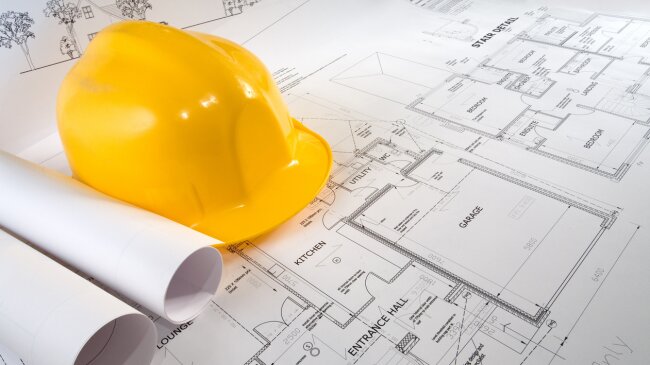The construction process is hectic and time-consuming for both residential and commercial projects. Builders must balance the highest quality of work with the lowest time and financial impact on the client.
Occurring before actual construction can begin, pre-construction services play a vital role in project planning, coordination, and execution, ensuring the success of any construction endeavor. Whether you’re a developer, architect, contractor, or project manager, understanding the intricacies of pre-construction services is crucial to achieving project success.
In this guide, we’ll break down everything pre-construction services offer clients.
What Are Pre-Construction Services?
A vast amount of planning must take place before breaking ground. Pre-construction services encompass a suite of planning, assessment, and coordination activities conducted before the physical construction phase of a project begins.
Project stakeholders rely on pre-construction services to evaluate project requirements, conduct site analyses, develop conceptual designs, estimate budgets, and establish construction schedules. Additionally, pre-construction services often include value engineering assessments to optimize project value and mitigate risks.
By opting for pre-construction services, project stakeholders can identify and address potential challenges early on, streamline project planning and execution, and ultimately, maximize the efficiency and effectiveness of the construction process.
Top Pre-Construction Services
For any build, laying a solid foundation begins long before the ground is broken. Pre-construction services help decrease risk and raise return on investment. From initial evaluations to final budgeting, each service is crucial in optimizing project efficiency, providing cost transparency, mitigating risks, and delivering exceptional results.

1. Overall Evaluation
An overall evaluation involves a comprehensive assessment of project requirements, goals, and constraints. This stage sets the groundwork for subsequent planning and decision-making processes, ensuring that when it comes to project costs, there are no surprises for the client.
2. Existing Condition & Site Analysis
The starting point for all projects is different; many clients are renovating or adding to an existing structure. In these cases, analyzing existing conditions and site characteristics is essential for understanding site-specific challenges, environmental factors, and regulatory requirements. This analysis informs subsequent design and construction plans, helping to determine if a complete replacement, major renovation, or minimal renovation is needed.
3. Initial Schematic Design
The initial schematic design phase involves developing conceptual drawings and layouts based on project requirements and site analysis. This stage lays the visual foundation for the project’s architectural and structural elements.
4. Building Information Modeling (BIM)
BIM enables builders to create digital representations of the project, integrating 3D modeling, data management, and collaborative tools. BIM enhances coordination, visualization, and decision-making throughout the project lifecycle.
5. Preliminary Budget Estimate
Developing a preliminary budget estimate involves assessing project costs based on design concepts, materials, labor, location, regulations, timeline, and more. This early budgeting helps stakeholders align expectations and make informed financial decisions.
6. Value Engineering Assessment
In this phase, the contractor will attempt to determine if the scope of the work will fit within the client’s budget. The contractor will look for more areas where there are opportunities for cost savings based on experiences they have had with projects of a similar scope. They will project the life-cycle cost analysis of certain materials involved in the job and provide alternative solutions. In this way, value engineering optimizes project value by identifying opportunities to enhance performance, reduce costs, and improve efficiency without compromising quality or functionality.
7. Bid Packaging
Bid packaging involves breaking down the project into manageable components or packages for subcontractor bidding such as for electrical, plumbing, or tile work. This approach facilitates competitive bidding and streamlines the procurement process, ensuring you get the best work for the best price.
8. Final Budget
The final budget incorporates detailed cost estimates, contingencies, and allowances based on finalized design documents and procurement decisions. This budget serves as a baseline for financial management throughout the project.
9. Construction Schedule
Developing a construction schedule involves sequencing project activities, setting milestones, and establishing timelines for completion. A well-defined schedule helps optimize resource allocation and minimize project delays.
10. Material Procurement
Material procurement entails sourcing, purchasing, and managing construction materials and supplies. Effective procurement practices ensure timely delivery, quality assurance, and cost control throughout the project.
Benefits of Pre-Construction Services

Discovering the full potential of any construction project begins with thorough planning and strategic decision-making. Pre-construction services bring a host of advantages to construction projects of all sizes and complexities.
From risk mitigation to cost control, enhanced planning to improved collaboration, pre-construction services provide a roadmap for success, ensuring that projects are executed efficiently, on time, and within budget. These are the benefits you can expect from utilizing pre-construction services:
- Risk Mitigation: Identifying and addressing potential risks early in the project lifecycle helps mitigate costly delays and disruptions.
- Cost Control: Detailed budgeting and value engineering assessments enable stakeholders to control costs and maximize project value.
- Improved Planning: Pre-construction services facilitate thorough planning, leading to smoother project execution and enhanced outcomes.
- Enhanced Collaboration: By involving stakeholders early in the process, pre-construction services promote collaboration and alignment of project goals.
- Quality Assurance: Rigorous analysis and assessment during pre-construction help ensure that project designs meet quality standards and regulatory requirements.
Pre-Construction Services and Beyond

The foundation of a building project’s success relies on much more than brick and mortar. A good construction manager will help the project owner know what to expect and when by providing a step-by-step roadmap and project schedule. When considering which construction manager to work with, ask about these pre-construction services and others they may provide.
As the construction industry continues to evolve, embracing the principles of pre-construction services will be essential for achieving excellence in project delivery. Whether you’re embarking on a new construction venture or seeking to elevate the performance of existing projects, integrating pre-construction services into your workflow is the key to happy clients.
CEDREO’s home design software streamlines the planning process from ideation to pre-construction planning and beyond. Get started free today.



